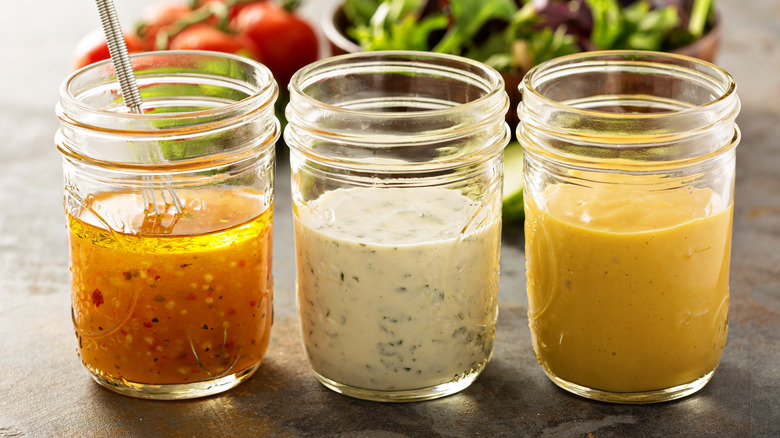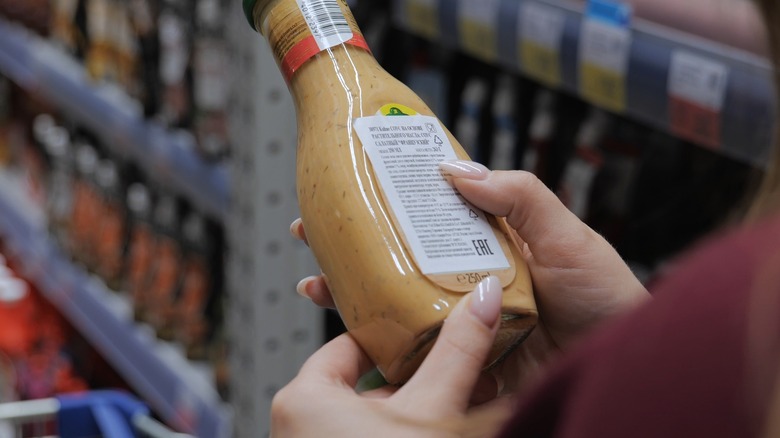Yes, You Can Freeze Salad Dressing But Here's Why You Shouldn't
Freezing is a fantastic way to preserve food. It's not just easy and economical, but is also more versatile than other methods. You'd be hard-pressed to find another preservation method that works for lasagna, strawberries, and chocolate chip cookie dough. But freezing has its limitations, causing dairy products to separate into lumps, and leafy greens to go limp. So before you stick something in the freezer, consider whether or not you can — and whether or not you should.
One item that should give you pause is salad dressing. Maybe you're going on an extended vacation and don't want to come home to a fridge full of spoiled food. Maybe they stopped selling your favorite flavor, and you want to preserve it as long as possible. Whatever the reason, you want to preserve that salad dressing — but you're not sure how.
The good news: Many types of salad dressings are already pretty shelf stable. Vinegar, a key ingredient in many bottles of salad dressing, is a natural preservative. Store-bought vinegar can keep almost indefinitely — and while the shelf life goes down when mixed with other ingredients, vinaigrettes can last for up to 4 months past the best by date. But not all dressings will last that long, and unfortunately, the ones with the shortest shelf life tend to be the hardest to freeze.
Why you should avoid freezing salad dressing
Many salad dressings, including vinaigrettes and mayonnaise-based dressings, are essentially oil-based emulsions. These emulsions break apart when they're frozen, ruining the consistency of the salad dressing. Freezing gets especially iffy if the dressing includes eggs, cheese, or other dairy products. While it's absolutely possible to freeze dairy, it's difficult — if not impossible — to get frozen dairy back to its former texture.
You should also note that it's important to freeze foods like salad dressing in a freezer-proof container. Stick a glass bottle in the freezer, and you'll likely end up with glass shards and half-frozen salad dressing all over your freezer.
You're really best off keeping salad dressing in the fridge — just keep an eye on it to make sure that it's fresh. Homemade dressings tend to go bad faster than store-bought. As soon as you start adding ingredients like mustard, lemon, or onion to an otherwise shelf-stable vinaigrette, you start to compromise its longevity. A food's shelf life is only as long as its fastest-expiring ingredient. That means that dressings — especially homemade dressings — with ingredients like sour cream or eggs should be eaten within a few days. The same goes for dressings that include fresh vegetables like onions or garlic. If you're afraid that a salad dressing has expired, check for telltale signs like changes in color, texture, or smell, and if in doubt, discard.

